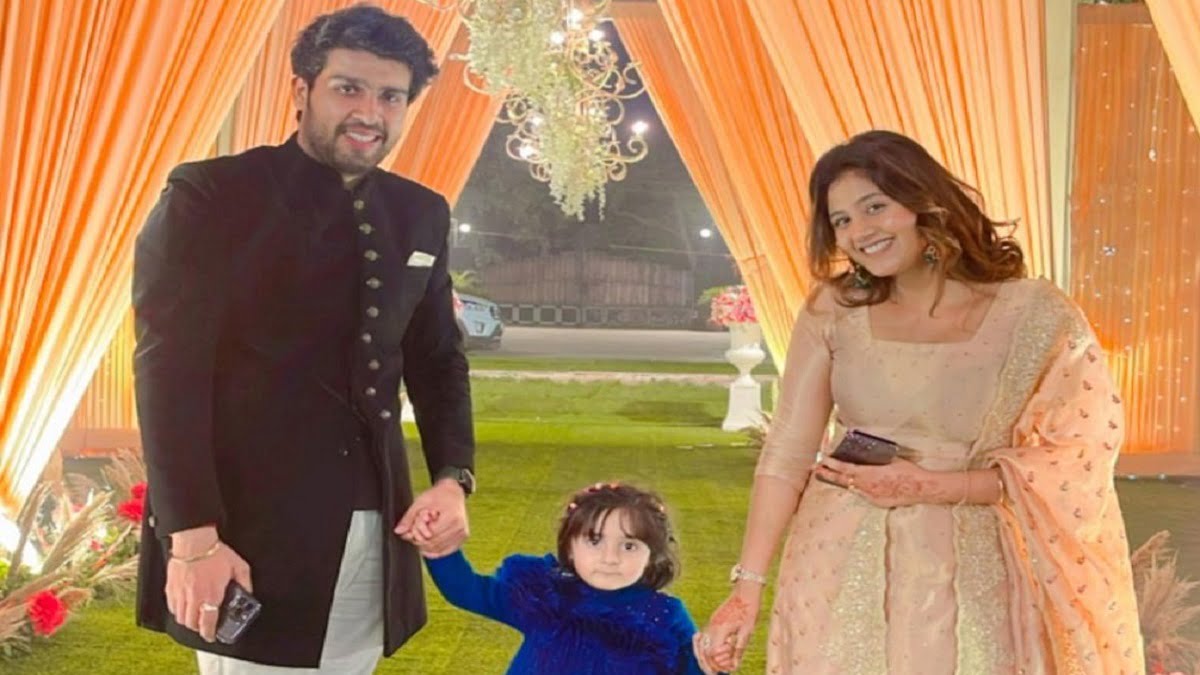Hey there, folks! Let’s dive right into this topic that’s been buzzing around like crazy. If you’ve been scrolling through your feeds lately, chances are you’ve come across mentions of Anjali Arora and her so-called "viral MMS XXX." Now, before we go any further, let’s get one thing straight: this story has sparked a lot of curiosity, rumors, and even some confusion. But here’s the deal—what’s really going on? What’s fact versus fiction? And most importantly, why does it matter? Stick with me as I break it all down for ya!
First off, if you’re scratching your head wondering who Anjali Arora is, don’t sweat it. You’re not alone. This name started popping up in headlines after a controversial incident involving a supposed private video that went viral online. The internet being the wild west that it is, naturally blew things way out of proportion. So, is it true? Is it fake? Or somewhere in between? That’s what we’re about to find out.
Before we jump into the nitty-gritty details, let’s set the stage. In today’s world, where information spreads faster than wildfire, anything private can easily become public property. And unfortunately, people often capitalize on these situations for clicks, views, and drama. But hey, let’s not jump to conclusions just yet. There’s more to this story than meets the eye, and I’m here to help you separate fact from fiction. Ready? Let’s go!
Read also:Indiana Pacers Defeat Dallas Mavericks In Close Game
Who Is Anjali Arora? A Quick Bio
Alright, first things first—let’s talk about who Anjali Arora really is. Is she a celebrity, an influencer, or just an ordinary person caught up in a storm of misinformation? Well, buckle up because the answer might surprise you.
Anjali Arora isn’t exactly a household name, but her recent association with this viral incident has thrust her into the spotlight. As far as we know, she’s a young woman whose life took an unexpected turn when her alleged private content ended up in the wrong hands. Now, before you start forming opinions, remember that everyone deserves privacy, and no one should have their personal moments shared without consent.
Here’s a quick rundown of what we know about her:
| Name | Anjali Arora |
|---|---|
| Age | Not publicly disclosed |
| Profession | Not widely known |
| Location | India (assumed) |
As you can see, there’s not much concrete information available about her, which makes the whole situation even murkier. But hey, that’s where we come in—to dig deeper and uncover the truth!
Understanding the Viral Phenomenon
So, what exactly is this "viral MMS XXX" everyone’s talking about? To break it down simply, an MMS (Multimedia Messaging Service) is basically a text message that includes media files like images or videos. In this case, the rumor mill claims that a private video of Anjali Arora was leaked and shared widely via MMS.
Now, here’s the kicker: the authenticity of the video itself is still up for debate. Some sources claim it’s real, while others say it’s completely fabricated. And honestly, with the rise of deepfake technology, it’s hard to tell what’s legit and what’s been manipulated.
Read also:Chip And Joanna Gaines Devastating Announcement A Comprehensive Look
What we do know is that this incident highlights a much larger issue: the invasion of privacy in the digital age. Whether the video is real or not, the fact that someone’s personal content can be leaked and spread without their permission is a serious problem that needs to be addressed.
The Impact on Anjali Arora
Imagine waking up one day to discover that your private moments have been plastered all over the internet. Sounds like a nightmare, right? That’s exactly what Anjali Arora is reportedly going through. The impact on her mental health, reputation, and personal life must be immense.
Unfortunately, cases like these aren’t uncommon. In the age of social media, where content travels at lightning speed, victims often face relentless scrutiny, judgment, and even harassment. It’s a harsh reminder of why digital privacy is so important.
Here’s the thing: none of us should be quick to judge or spread rumors without knowing the full story. Instead, we should focus on supporting those affected and advocating for stricter laws against privacy violations.
Why Privacy Matters
Privacy is a fundamental human right, yet it’s often overlooked in today’s digital landscape. With platforms like WhatsApp, Telegram, and others making it easy to share content, the risk of leaks increases exponentially. And once something goes viral, it’s nearly impossible to erase it from the internet.
According to a study by Pew Research Center, nearly 64% of adults in the U.S. have experienced some form of data breach. That’s a staggering statistic that shows just how vulnerable we all are in the digital world. So, what can we do to protect ourselves? Here are a few tips:
- Avoid sharing sensitive content online, even with trusted individuals.
- Use strong passwords and enable two-factor authentication wherever possible.
- Be cautious about the apps and platforms you use, and review their privacy policies.
- Report any suspicious activity or unauthorized sharing of your content immediately.
By taking these precautions, we can reduce the chances of falling victim to privacy breaches.
The Role of Technology
Let’s talk tech for a moment. Advances in technology have brought us incredible tools and conveniences, but they’ve also created new challenges when it comes to privacy. For instance, deepfake technology—where AI is used to manipulate videos and images—has made it harder to distinguish between real and fake content.
In fact, a report by Deeptrace Labs found that the number of deepfake videos online increased by 330% between 2019 and 2020. That’s a mind-blowing statistic that shows just how prevalent this issue has become. And while deepfakes can be used for entertainment purposes, they also pose serious risks when misused.
So, how can we combat this growing threat? Experts suggest a combination of education, regulation, and technological solutions. By raising awareness about the dangers of deepfakes and implementing stricter laws, we can better protect individuals from harm.
Legal Implications
When it comes to privacy violations, the law is often slow to catch up with technology. However, there are existing laws that can be applied to cases like Anjali Arora’s. For example, in many countries, sharing private content without consent is considered a criminal offense.
In India, Section 67 of the Information Technology Act specifically addresses the publication of obscene material in electronic form. Additionally, Section 354C of the Indian Penal Code deals with voyeurism, which includes capturing or sharing intimate images without consent.
While these laws provide some protection, enforcement remains a challenge. That’s why it’s crucial for governments and tech companies to work together to create a safer digital environment for everyone.
Social Media and Its Role
Social media platforms play a significant role in the spread of viral content. Whether it’s intentional or accidental, once something goes viral, it’s almost impossible to control. And while platforms like Facebook, Twitter, and Instagram have policies against sharing explicit content, enforcement isn’t always consistent.
According to a report by Statista, over 4.5 billion people use social media worldwide. That’s a massive audience that can amplify any piece of content, good or bad, within seconds. So, what can platforms do to prevent the spread of harmful content?
- Implement stricter content moderation policies.
- Invest in AI tools to detect and remove inappropriate content quickly.
- Provide users with more control over their privacy settings.
- Collaborate with law enforcement agencies to address serious violations.
By taking these steps, social media platforms can help mitigate the damage caused by privacy breaches.
Public Perception and Responsibility
Finally, let’s talk about the role of the public in situations like this. It’s easy to get caught up in the drama and excitement of viral content, but we must remember that real people are affected by our actions. Sharing or commenting on sensitive content without considering the consequences can have lasting effects on someone’s life.
As responsible digital citizens, it’s our duty to think twice before hitting that share button. Instead of contributing to the noise, we should focus on offering support and understanding to those who’ve been wronged.
Here’s a simple rule of thumb: if you wouldn’t want it shared about you, don’t share it about someone else. It’s a small gesture, but it can make a big difference in creating a kinder, more empathetic online community.
Call to Action
So, what can you do to help? Start by educating yourself and others about the importance of digital privacy. Share this article with your friends and family to spread awareness. And most importantly, treat others with the respect and dignity they deserve, both online and offline.
Remember, the internet is a powerful tool, but with great power comes great responsibility. Let’s work together to make it a safer, more positive space for everyone.
Conclusion
And there you have it, folks! We’ve uncovered the mystery behind Anjali Arora’s viral MMS XXX and explored the broader implications of privacy in the digital age. While the truth behind the incident may never be fully known, one thing is certain: we all have a responsibility to protect each other’s privacy and respect personal boundaries.
Let’s recap the key points:
- Anjali Arora’s case highlights the dangers of privacy breaches in the digital world.
- Technology plays a significant role in both enabling and combating these issues.
- Legal protections exist, but enforcement remains a challenge.
- Social media platforms and the public have a shared responsibility to prevent the spread of harmful content.
Now, it’s your turn to take action. Leave a comment below sharing your thoughts on this topic. Have you ever been affected by a privacy breach? How do you stay safe online? And don’t forget to check out our other articles for more insights on digital privacy and beyond!
Table of Contents


